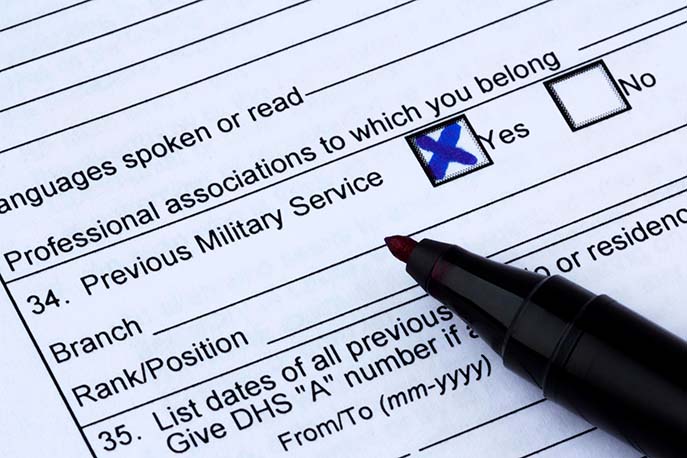Veteran's Guide to Starting Your Civilian Career
For Veterans and Career Transition

Take Command of Your Career
You have been in the military and are now transitioning into civilian employment. Your job in the military was important and helped mold you as a member of the Armed Forces. The challenges you will face during the transition can be overcome by preparation. Use the following steps to guide your new career search:
1
Changing Your Career Path
- Transitioning from a military role to a civilian job is hard work. An important first step is to decide what do you want to do next. Seek out veterans that have begun their civilian careers and understand where and how they applied. Networking is key to finding your next opportunity.
- Career assessments are also available to determine what interests you. Contact your local transition assistance office for information on assessments.
2
Military to Civilian Resume
- Your resume is the first impression a hiring manager or recruiter will have of your qualifications as a candidate. Your resume should reflect your dedication to your role and highlight your experience and skills. Review the job description and mirror your skills to the description. Include your accomplishments. Remember to translate your military experience into layman terms.
3
Where to Find Job Opportunities
- Start your job hunt with companies that have a veteran hiring program and a strong record for past hiring and a strong retention record. Check out the resources at Best Veteran Employer and Department of Labor’s HIRE Vets Medallion Program
- Federal employment isn’t a backup plan — it should be a priority
4
The Interview
- The interview process is handled differently at different companies. Always research the company and ask for details before you go. What is the dress code in your office? In addition to my resume, is there anything else I should bring to the interview? Who will I be interviewing with?
- Prepare how you will answer questions. Think of examples from your military service that highlight your skills. You have transferable skills and experiences that companies can use.
- Interviews can be via phone, video or face-to-face. Questions are most likely open ended. For example:
- “Tell me a time when you worked collaboratively?”
- “How have you led a team or a project?”
- “Do you prefer to work independently or as a team member?”
You may need to describe your ideal job or work environment. And always be prepared to talk about why you would be a great hire for the company and do your research.
Remember your audience, provide real-life examples, be positive and confident. This is the time to show your personality and remember to smile.
5
Find a Mentor
The military culture is unique and different than most private-sector roles. You are likely to experience an adjustment period regardless of how long you served in the military. A mentor can help guide you in your transition. Changing from a military position to civilian workplace involves changing your environment, having less formality, and more personal freedom. This journey will tap into your flexibility, adaptability, persistence, and resourcefulness.
Dedication, patience, and hard work are your best tools for success.
6
Use the Following Resources to Help You with Your Next Career Move
- Hire a Veteran, United States Department of Labor
- Military/Veteran Employment Resource Center